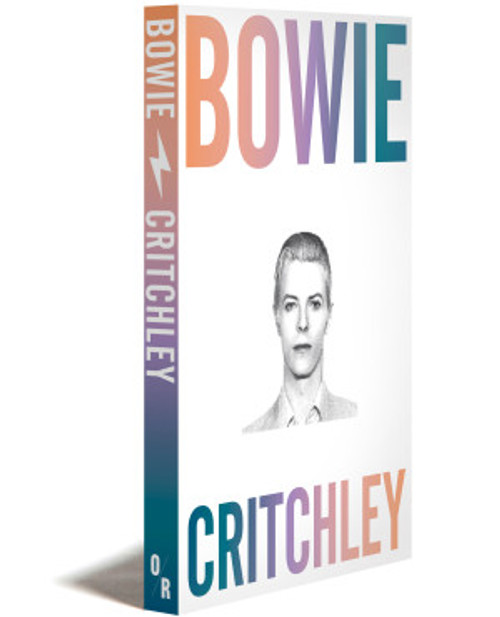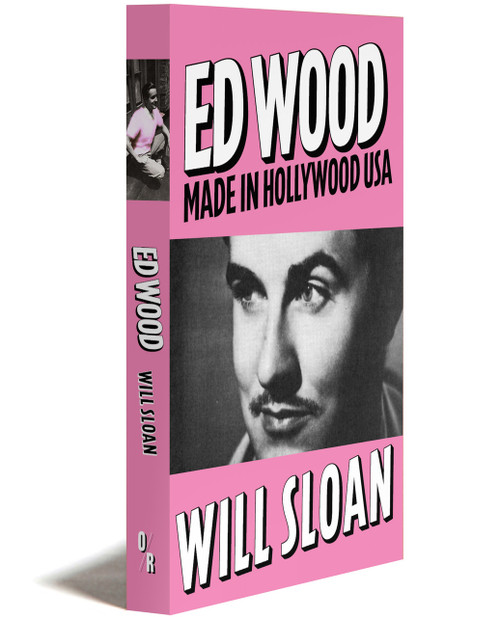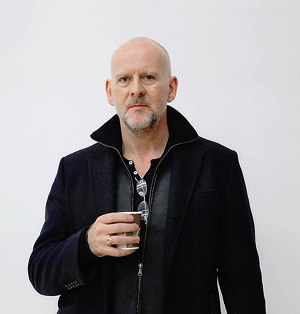Bowie
“A valuable little book, sizzling with original perceptions conveyed in clear, accessible language, unencumbered by university jargon.”
—The Irish Times“A truly inspiring voice...”
— PopMatters“The most powerful and provocative philosopher now writing...”
—Cornel West“Critchley lovingly unearths profoundly deep cuts from every Bowie era in a short sharp book worthy of its subject. Miraculously doubles up as an introduction to philosophy.”
—Gruff Rhys, member of Super Furry Animalsabout the bookabout
Simon Critchley first encountered David Bowie in the early seventies, when the singer appeared on Britain's most-watched music show, Top of the Pops. His performance of "Starman" mesmerized Critchley: it was "so sexual, so knowing, so strange". Two days later Critchley's mum bought a copy of the single; she liked both the song and the performer's bright orange hair (she had previously been a hairdresser). The seed of a lifelong love affair was thus planted in the mind of her son, aged 12.
In this concise and engaging excursion through the songs of one of the world's greatest pop stars, Critchley, whose writings on philosophy have garnered widespread praise, melds personal narratives of how Bowie lit up his dull life in southern England’s suburbs with philosophical forays into the way concepts of authenticity and identity are turned inside out in Bowie's work. The result is nearly as provocative and mind-expanding as the artist it portrays.
With illustrations by Eric Hanson.
“A magnificent and deceptively slim book, in which no essay takes longer to read than it would take to listen to a David Bowie song, but in which there is a cumulative sense of revelation as regards what makes Bowie special, and why it is that his work seems to yield more, the more time you spend there. The book is delightful, highly readable, with bits of Nietzsche, Ruskin, Roland Barthes and Deleuze rising up like wisps of cloud in its funny, moving and passionate field of inquiry.”
—Rick Moody, Salon
“Simon Critchley is a figure of quite startling brilliance, and I can never begin to guess what he'll do next, only that it is sure to sustain and nourish my appetite for his voice. His overall project may be that of returning philosophical inquiry, and 'theory,' to a home in literature, yet without surrendering any of its incisive power, or ethical urgency.”
—Jonathan Lethem
About The Author / Editor
Preview
The Art's Filthy Lesson
After Andy Warhol had been shot by Valerie Solanas in 1968, he said, "Before I was shot, I suspected that instead of living I'm just watching TV. Since being shot, I'm certain of it." Bowie's acute ten-word commentary on Warhol's statement, in the eponymous song from Hunky Dory in 1971, is deadly accurate: "Andy Warhol, silver screen / Can't tell them apart at all". The ironic self-awareness of the artist and their audience can only be that of their inauthenticity, repeated at increasingly conscious levels. Bowie repeatedly mobilizes this Warholian aesthetic.
The inability to distinguish Andy Warhol from the silver screen morphs into Bowie's continual sense of himself being stuck inside his own movie. Such is the conceit of "Life on Mars?," which begins with the "girl with the mousy hair", who is "hooked to the silver screen". But in the final verse, the movie's screenwriter is revealed as Bowie himself or his persona, although we can't tell them apart at all:
"But the film is a saddening bore 'Cause I wrote it ten times or more It's about to be writ again."
The conflation of life with a movie conspires with the trope of repetition to evoke a melancholic sense of being both bored and trapped. One becomes an actor in one's own movie. This is my sense of Bowie's much-misunderstood lines in "Quicksand":
"I'm living in a silent film Portraying Himmler's sacred realm Of dream reality."
in the media
Bowie
“A valuable little book, sizzling with original perceptions conveyed in clear, accessible language, unencumbered by university jargon.”
—The Irish Times“A truly inspiring voice...”
— PopMatters“The most powerful and provocative philosopher now writing...”
—Cornel West“Critchley lovingly unearths profoundly deep cuts from every Bowie era in a short sharp book worthy of its subject. Miraculously doubles up as an introduction to philosophy.”
—Gruff Rhys, member of Super Furry Animalsabout the bookabout
Simon Critchley first encountered David Bowie in the early seventies, when the singer appeared on Britain's most-watched music show, Top of the Pops. His performance of "Starman" mesmerized Critchley: it was "so sexual, so knowing, so strange". Two days later Critchley's mum bought a copy of the single; she liked both the song and the performer's bright orange hair (she had previously been a hairdresser). The seed of a lifelong love affair was thus planted in the mind of her son, aged 12.
In this concise and engaging excursion through the songs of one of the world's greatest pop stars, Critchley, whose writings on philosophy have garnered widespread praise, melds personal narratives of how Bowie lit up his dull life in southern England’s suburbs with philosophical forays into the way concepts of authenticity and identity are turned inside out in Bowie's work. The result is nearly as provocative and mind-expanding as the artist it portrays.
With illustrations by Eric Hanson.
“A magnificent and deceptively slim book, in which no essay takes longer to read than it would take to listen to a David Bowie song, but in which there is a cumulative sense of revelation as regards what makes Bowie special, and why it is that his work seems to yield more, the more time you spend there. The book is delightful, highly readable, with bits of Nietzsche, Ruskin, Roland Barthes and Deleuze rising up like wisps of cloud in its funny, moving and passionate field of inquiry.”
—Rick Moody, Salon
“Simon Critchley is a figure of quite startling brilliance, and I can never begin to guess what he'll do next, only that it is sure to sustain and nourish my appetite for his voice. His overall project may be that of returning philosophical inquiry, and 'theory,' to a home in literature, yet without surrendering any of its incisive power, or ethical urgency.”
—Jonathan Lethem
About The Author / Editor
Preview
The Art's Filthy Lesson
After Andy Warhol had been shot by Valerie Solanas in 1968, he said, "Before I was shot, I suspected that instead of living I'm just watching TV. Since being shot, I'm certain of it." Bowie's acute ten-word commentary on Warhol's statement, in the eponymous song from Hunky Dory in 1971, is deadly accurate: "Andy Warhol, silver screen / Can't tell them apart at all". The ironic self-awareness of the artist and their audience can only be that of their inauthenticity, repeated at increasingly conscious levels. Bowie repeatedly mobilizes this Warholian aesthetic.
The inability to distinguish Andy Warhol from the silver screen morphs into Bowie's continual sense of himself being stuck inside his own movie. Such is the conceit of "Life on Mars?," which begins with the "girl with the mousy hair", who is "hooked to the silver screen". But in the final verse, the movie's screenwriter is revealed as Bowie himself or his persona, although we can't tell them apart at all:
"But the film is a saddening bore 'Cause I wrote it ten times or more It's about to be writ again."
The conflation of life with a movie conspires with the trope of repetition to evoke a melancholic sense of being both bored and trapped. One becomes an actor in one's own movie. This is my sense of Bowie's much-misunderstood lines in "Quicksand":
"I'm living in a silent film Portraying Himmler's sacred realm Of dream reality."










